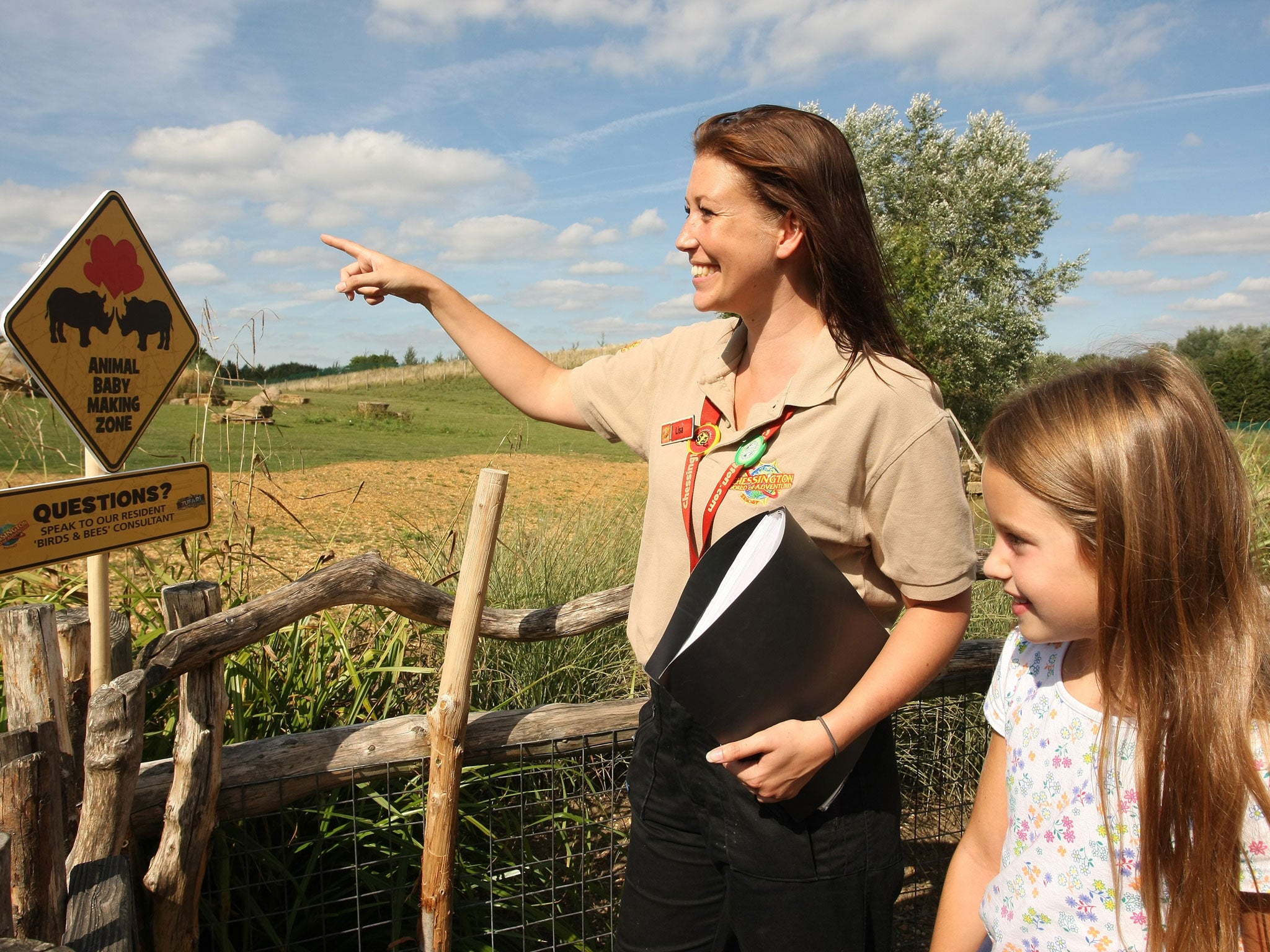Zoo enlists ‘birds and bees’ expert to answer children's questions about mating animals
An animal baby boom prompted a move to answer an age-old dilemma: what are those monkeys doing?

Your support helps us to tell the story
From reproductive rights to climate change to Big Tech, The Independent is on the ground when the story is developing. Whether it's investigating the financials of Elon Musk's pro-Trump PAC or producing our latest documentary, 'The A Word', which shines a light on the American women fighting for reproductive rights, we know how important it is to parse out the facts from the messaging.
At such a critical moment in US history, we need reporters on the ground. Your donation allows us to keep sending journalists to speak to both sides of the story.
The Independent is trusted by Americans across the entire political spectrum. And unlike many other quality news outlets, we choose not to lock Americans out of our reporting and analysis with paywalls. We believe quality journalism should be available to everyone, paid for by those who can afford it.
Your support makes all the difference.The sight of a pair of monkeys blithely copulating in full view in their zoo enclosure has posed generations of parents a tricky dilemma.
What exactly do you say to your budding little David Attenborough who wants to know what the cuddly creatures are up to? You could either tell the truth – or more likely make a sharp exit for a less demonstrably priapic species.
One of Britain’s most popular zoos now believes that it has finally solved the age-old problem after its appointment of zoo-keeper Lisa Britton as its first “birds and bees consultant”.
The position was created in the wake of a population spike at Chessington World of Adventures in Surrey which in recent weeks has welcomed the arrival of eight meerkats, a sitatunga, a golden lion headed tamarin, two squirrel monkeys, twin gentle lemurs and a Standing’s day gecko.
Ms Britton, 32, a primate specialist believes that honesty is the best policy.
“After spending 10 years watching primates mate I am pretty much unembarrassable. They are quite quick and are happy to do it in full view of the public. They really don’t have many qualms,” she said.
“I have had some really silly comments that parents have told their children. On one occasion two primates were mating and one of them was bigger than the other. This parent told her child that the bigger one was pumping the smaller one up.
“It is just easier to say that they are mating and that in four months’ time there will be a baby on the way. That way it doesn’t make it a taboo. Children are not shocked or disgusted by it – they just accept it,” she added.
Ms Britton recommends the use of straightforward language and basic scientific terms to explain why, for example, the squirrel monkeys are displaying their genitalia or the female gorillas are suddenly showing off in front of the silverback.
A simple explanation can also help children understand quite complex social hierarchies and behaviours as well as to draw their attention to the fact that some species are under threat.
Typically, she said, it is the dads and the young boys who are the most bemused by the experience although youngsters are generally satisfied with learning the very basics of what they are observing.
Most young people tend to lose interest around their time they hit adolescence, she said. Yet ignorance about basic reproductive facts can remain into later life. “Even a lot of adults don’t understand the concept that an egg is an unfertilised chicken embryo,” she said.
Yet for all their quick-fire public shows of affection the most commonly queried species is not to be found in the monkey house. “Though we have questions about all our species, we surprisingly have the most around our tortoises, who mate slowly but for a long period,” she said.
Subscribe to Independent Premium to bookmark this article
Want to bookmark your favourite articles and stories to read or reference later? Start your Independent Premium subscription today.
Join our commenting forum
Join thought-provoking conversations, follow other Independent readers and see their replies
Comments